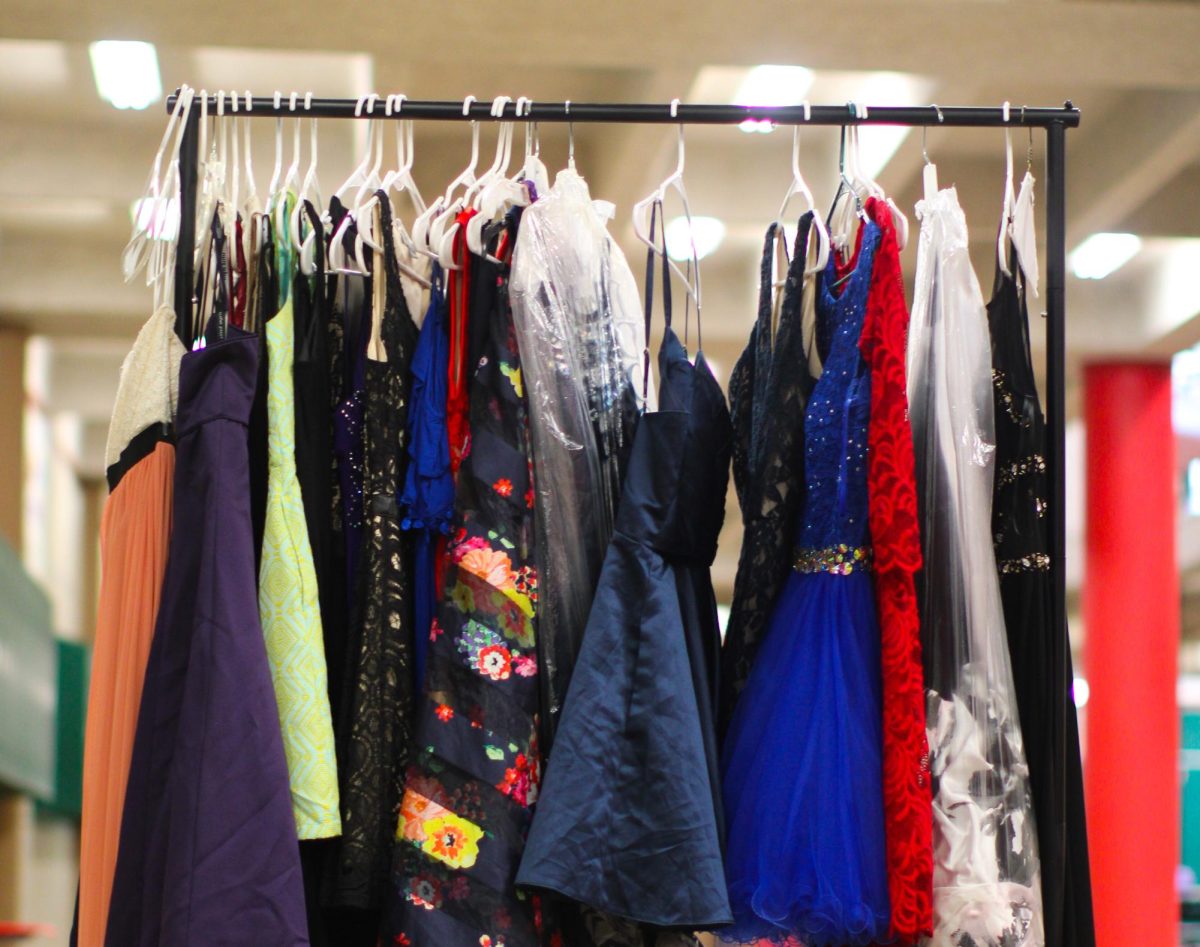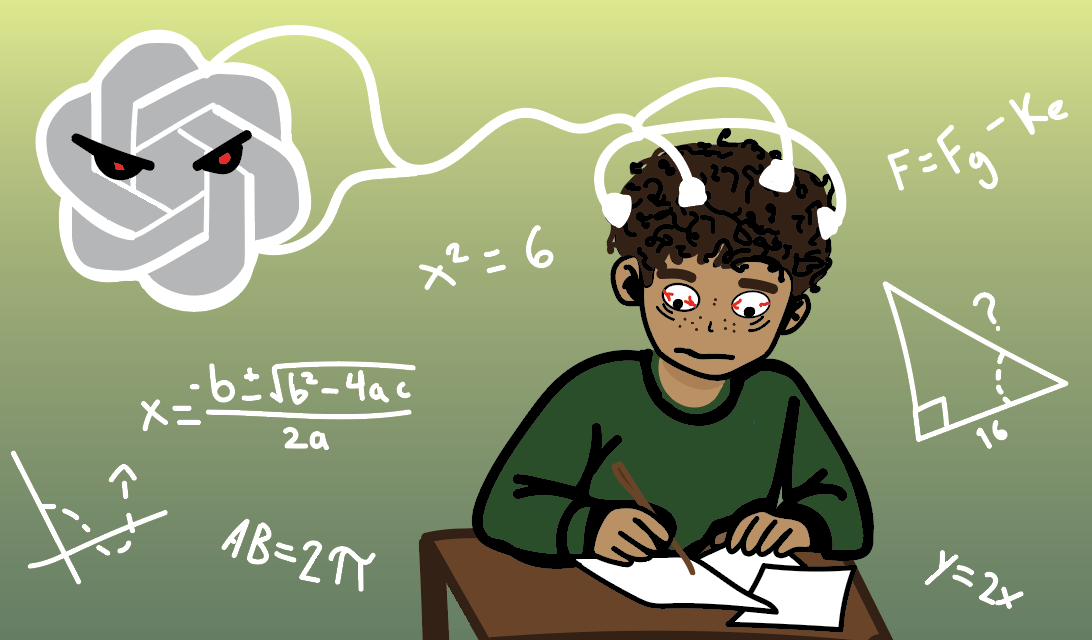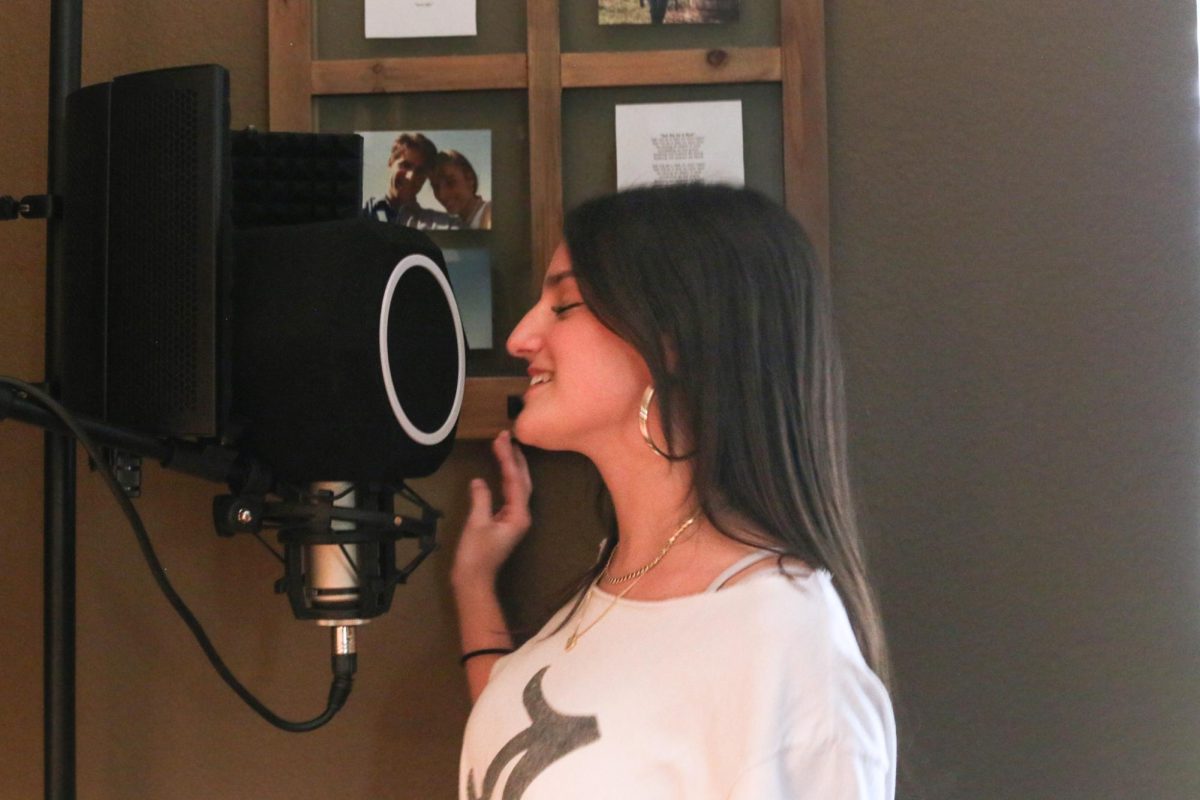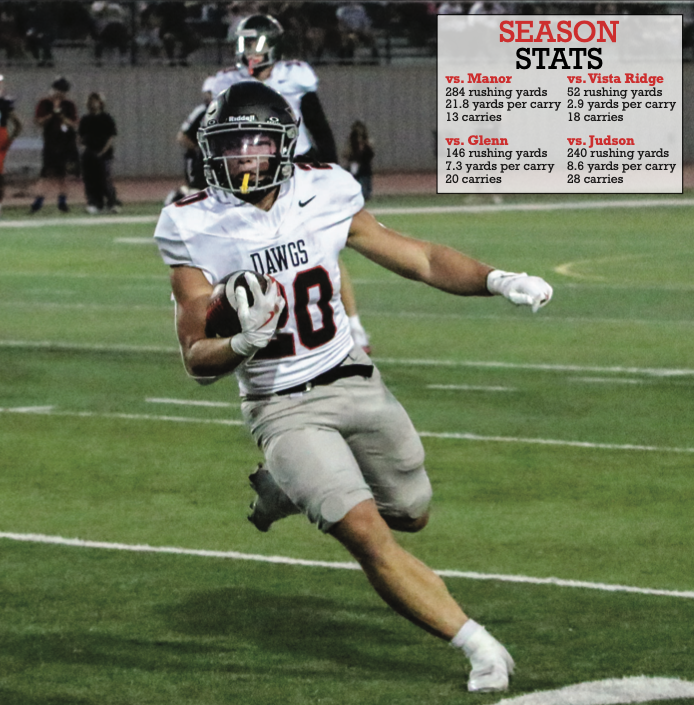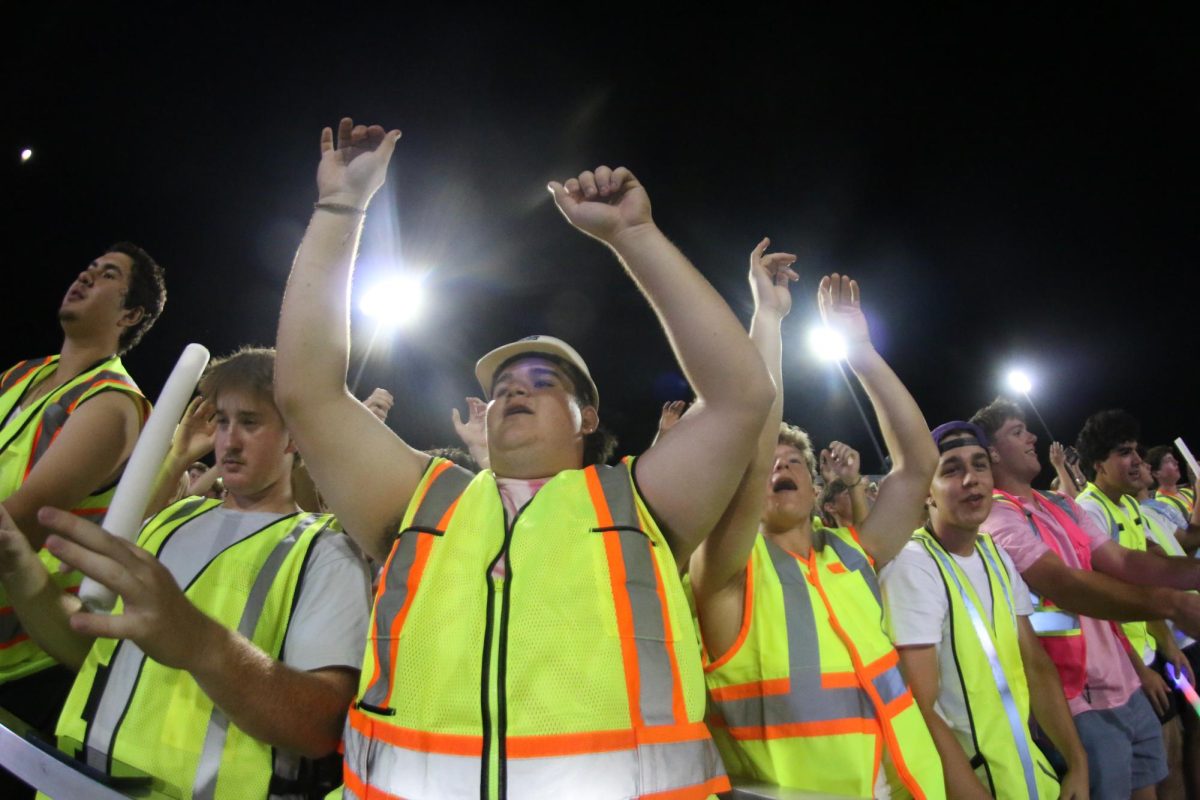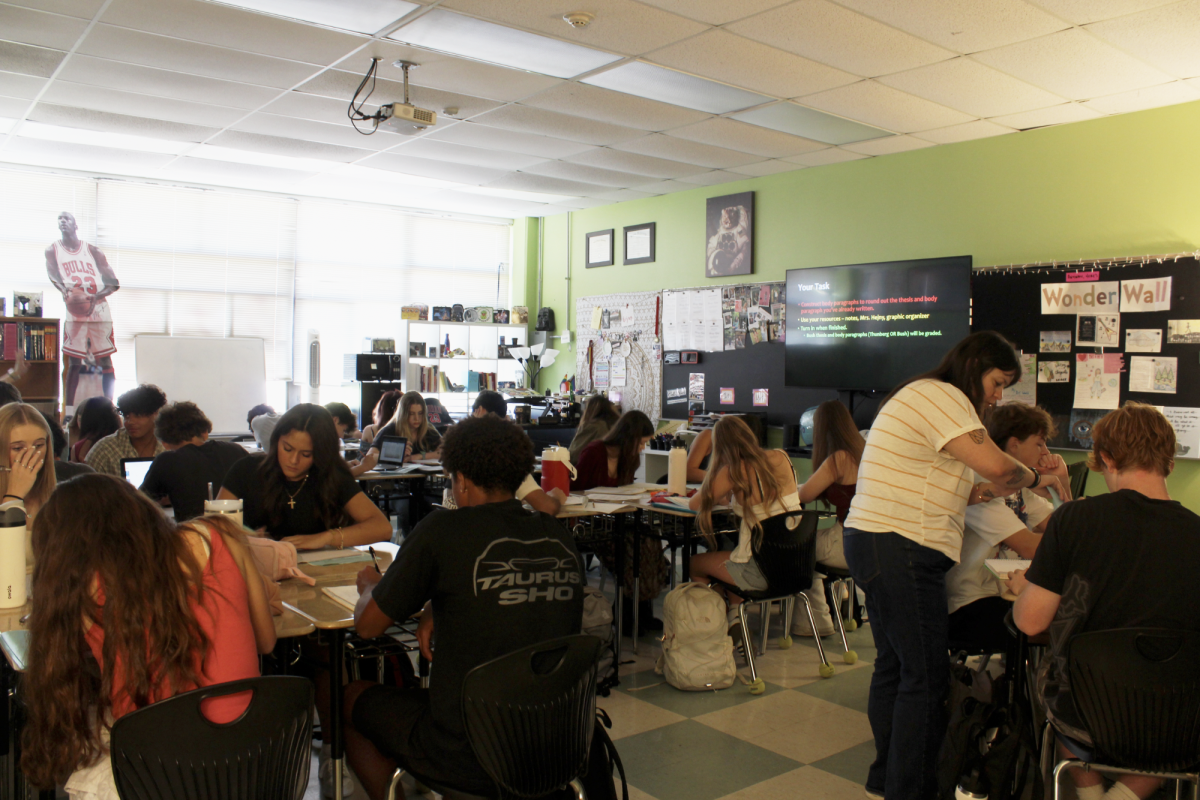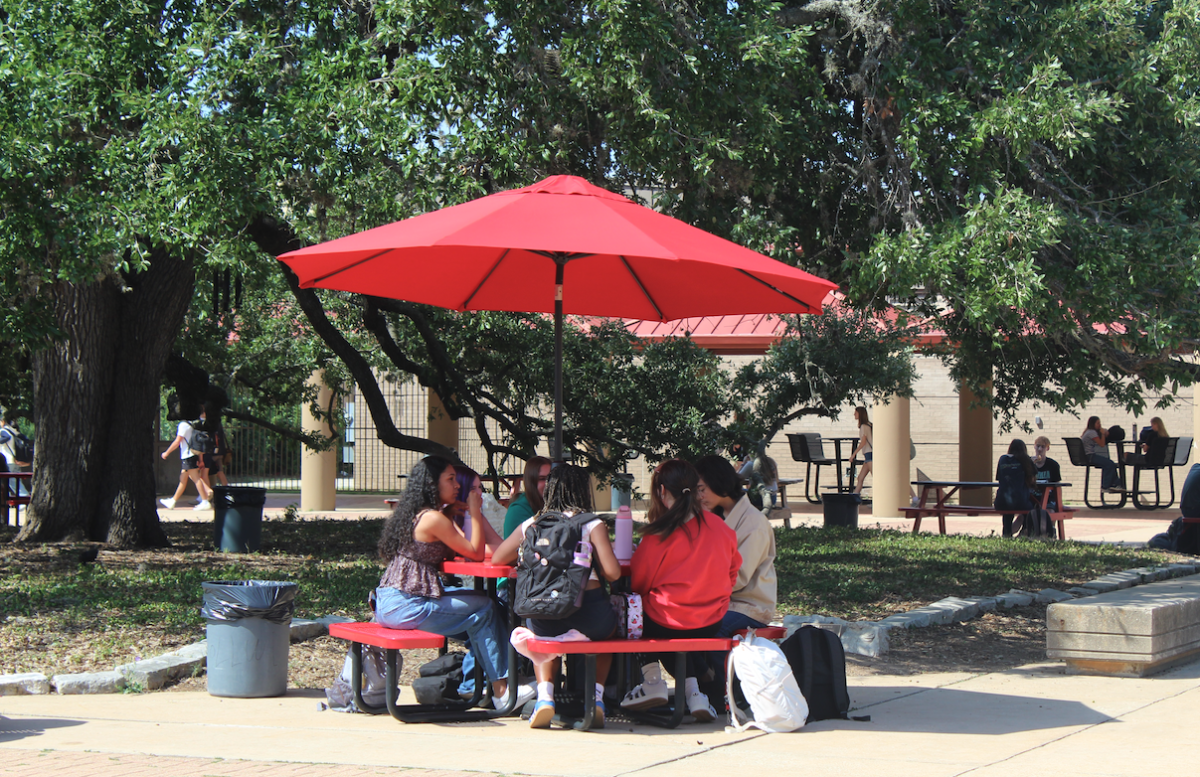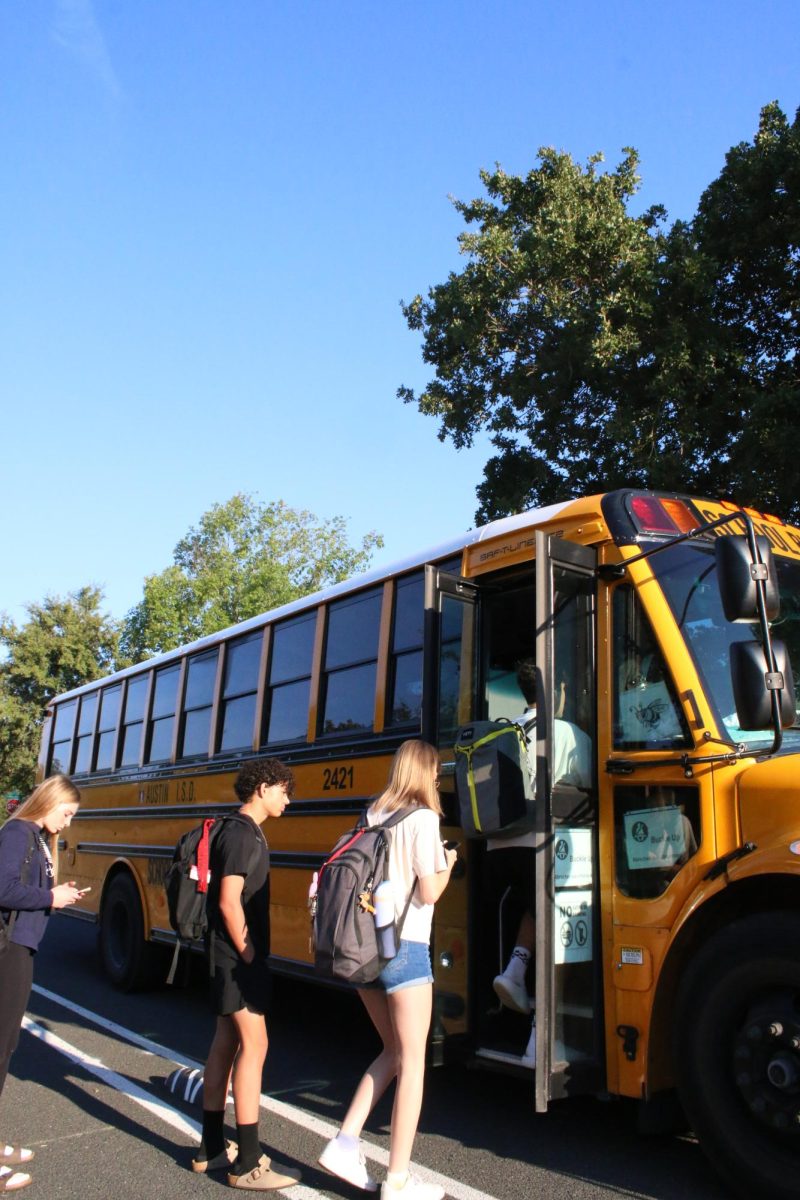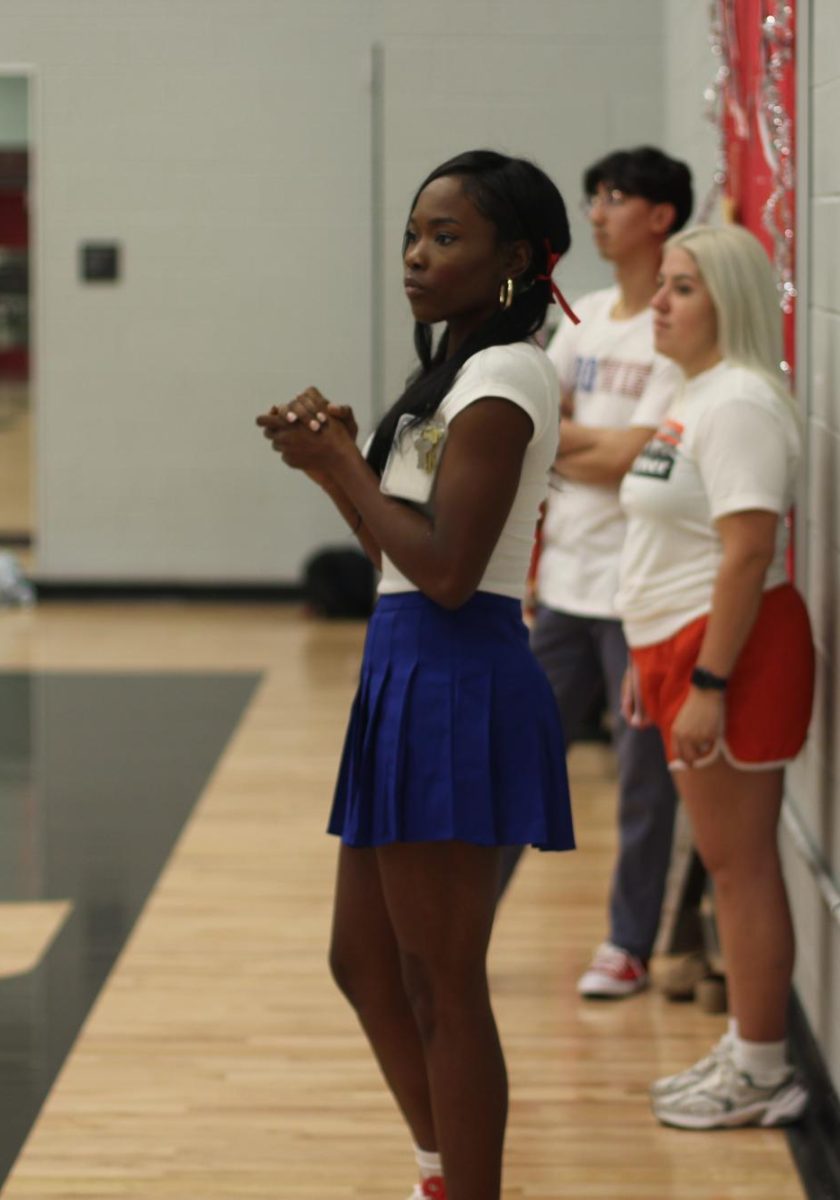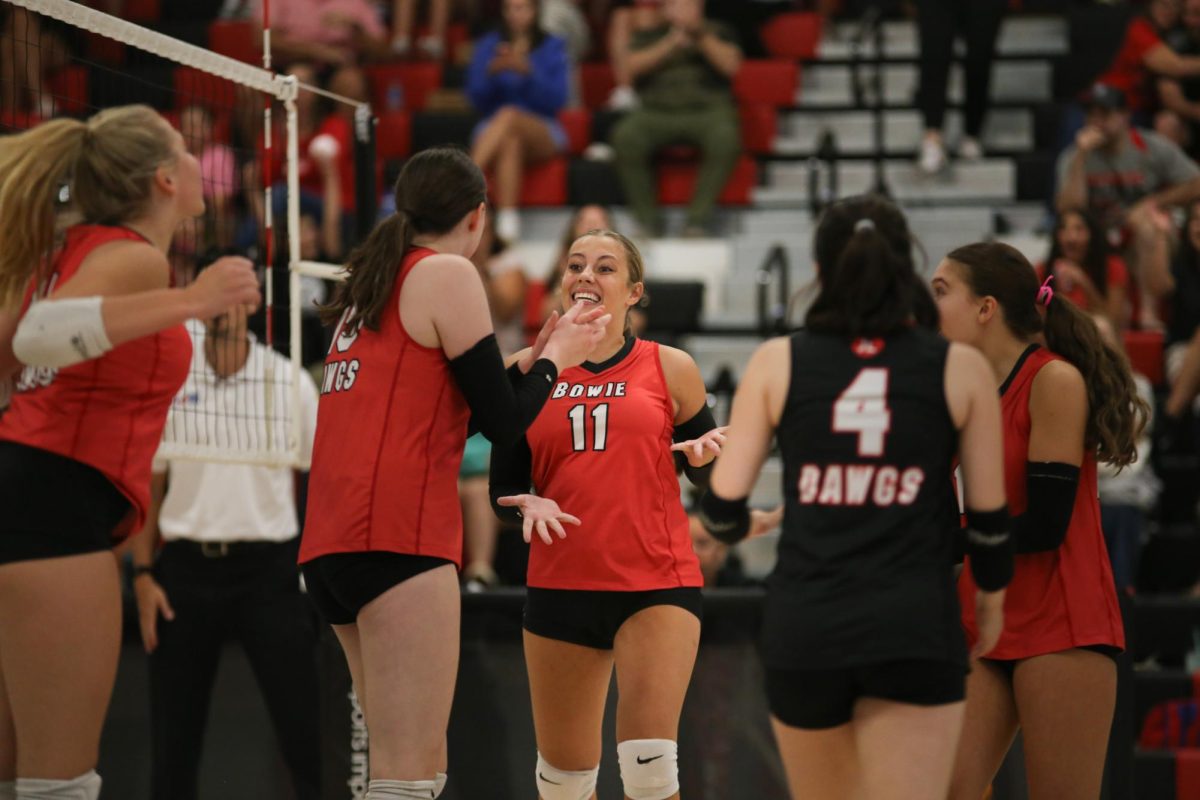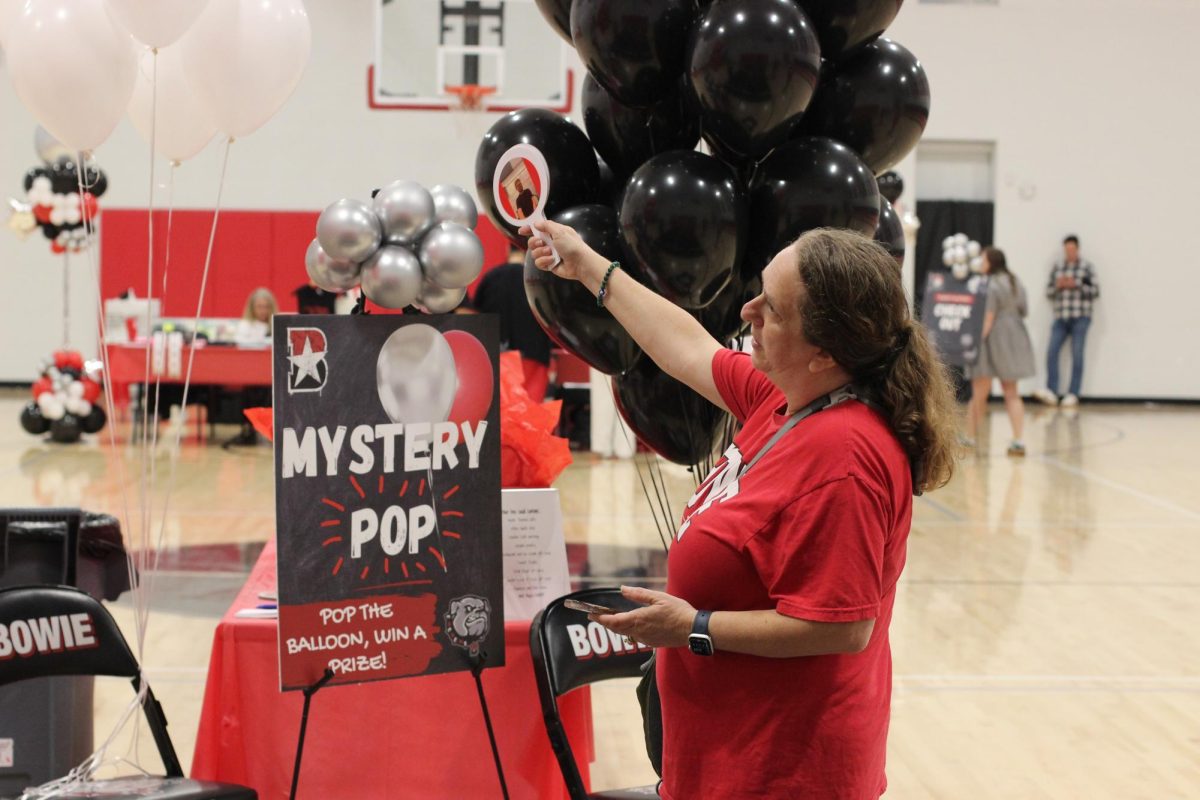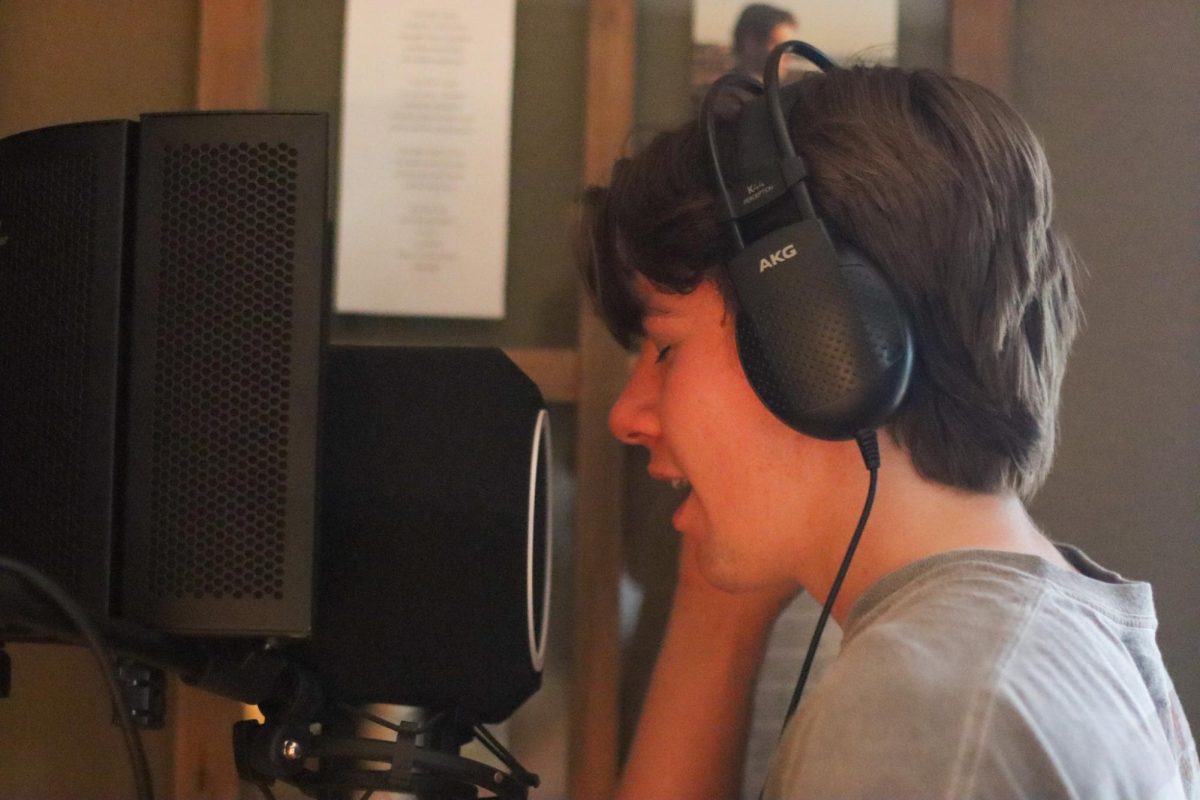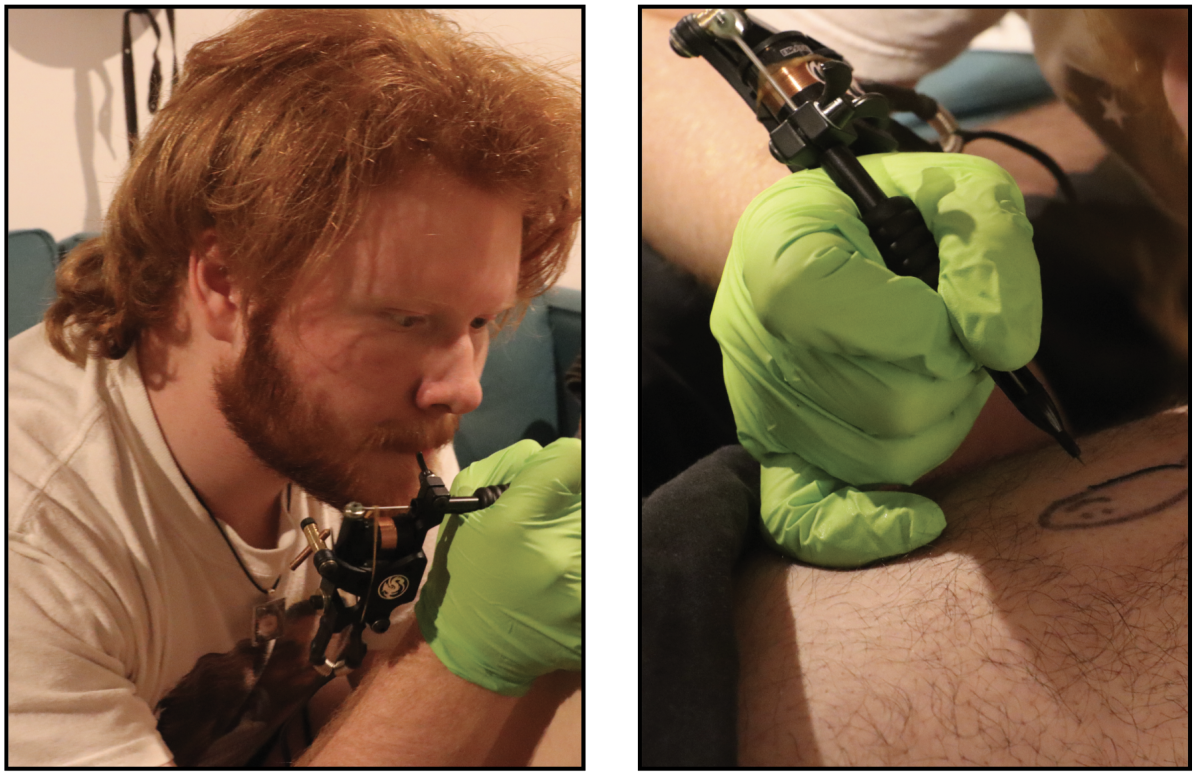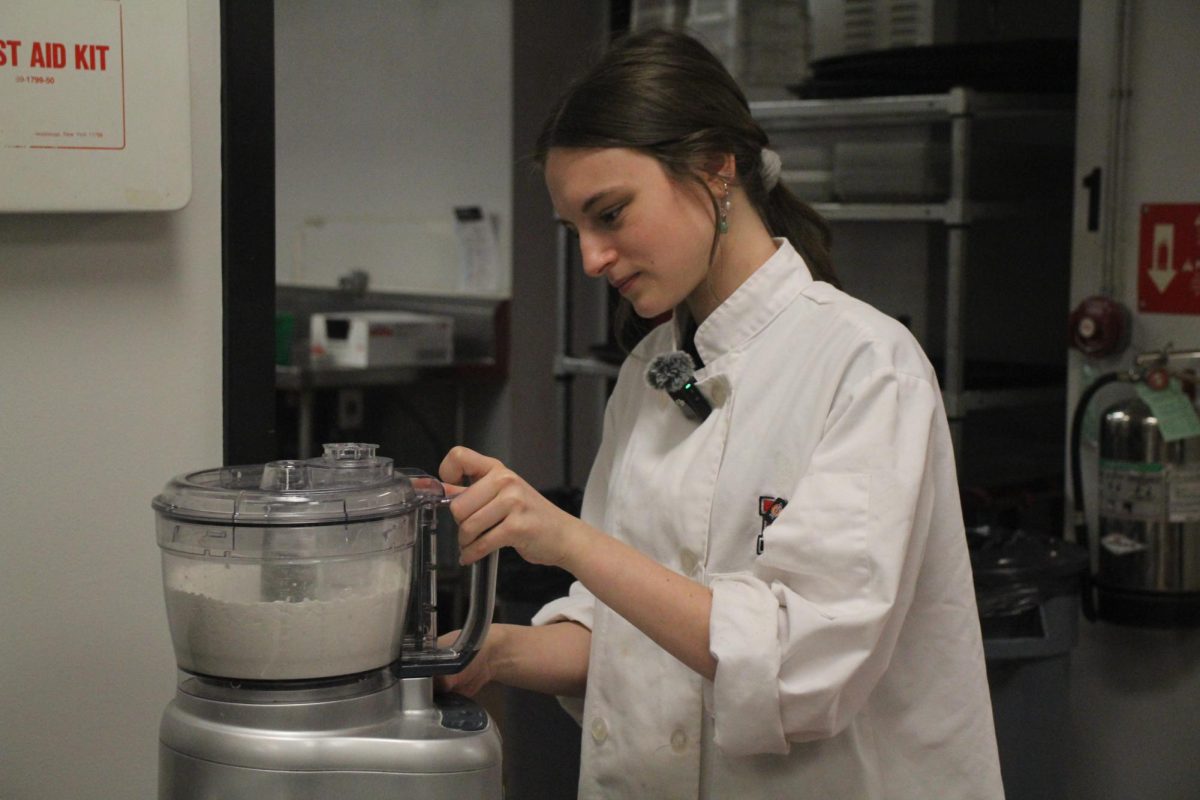In the months leading up to prom, popular dress chains and small dress boutiques are stocked full of dresses dedicated to the event. With the average price of a prom dress being several hundred dollars, some students may find it difficult to cover the cost of a quality dress even without considering the multitude of other prom expenses. Bowie special education science teacher, Kristin Mijares, is offering students the opportunity to find a dress without the stress of a price tag.
Mijares is building a collection of donated prom dresses to provide free to students in the convenient proximity of their school. She has set up her classroom so that students can come to browse or try on a dress before and after school and during both lunches.
“This is brand new, so I’m learning as I go. The idea was just something I thought of randomly in order to help the students here,” Mijares said. “If the girls want to go try on a dress, I’m literally the class right next to a bathroom, so they can go try on a dress if they want to, there’s really no structure. It’s kind of like a trust system.”
Spreading word of her plans by email, over morning announcements, and posters hung throughout school halls, Mijares garnered the interest of several teachers and staff who supported the cause. Economics teacher and Starlight Theater Company costume volunteer Ruth Narvaiz offered her tailoring skills to make alterations if students needed them.
“I hope I give them the opportunity to feel comfortable in their clothing,” Narvaiz said “I’ve had a similar conversation with lots of theater students when we start fitting. I don’t want anyone to be uncomfortable because if it’s prom, and you’re not fully comfortable, you can’t have fun. I want students to be comfortable and I hope they’ll remember that somebody helped them and pay it forward someday.”
The dresses in Mijares’ inventory, all of which are donated, range vastly in price, style, and age, offering a wide variety of choices for students to browse. Because a prom dress is usually only worn on one occasion, they are almost always new or in a similar condition.
“I was helping a friend organize her closet and she was getting rid of a lot of stuff. So, when I saw Mrs. Mijares’ email, I thought, ‘oh, I can donate some of my friend’s stuff,’” math teacher Jamie Lankes said. “For things like prom dresses, you’re probably just going to wear it once, maybe twice. Holding on to it for years is wasteful. I love being able to pass things on that other people can use that are new to them.”
As Bowie’s 2024 prom season comes to a close, Mijares is reflecting upon the project’s impact, and assessing how to improve for the future.
“This is the first time we’ve done it, so we’re learning as we go,” Mijares said. “So, it might be completely different next year. If students aren’t interested it might not happen, I honestly don’t know. Maybe I’ll keep the dresses that haven’t been donated or used, and keep them for next year. We’ll have to see.”



